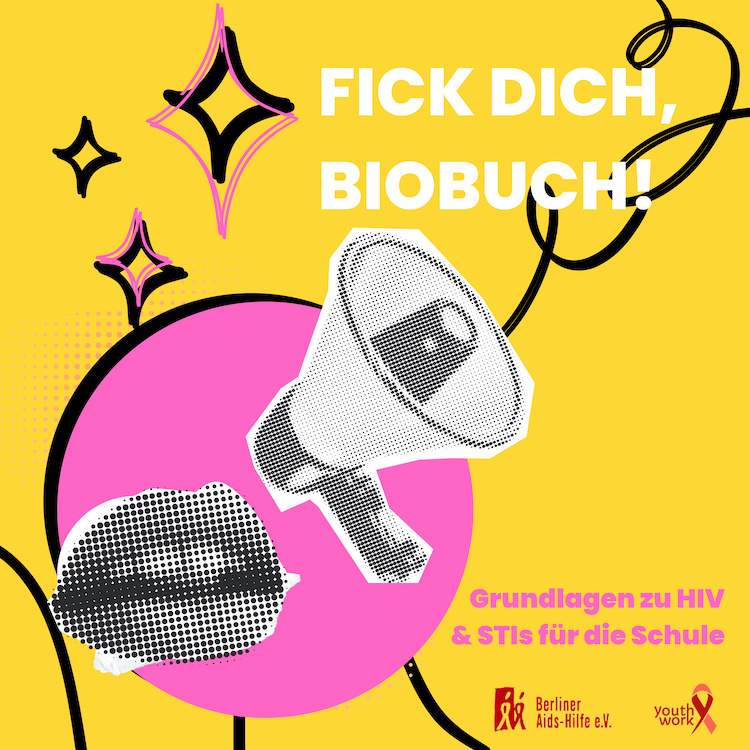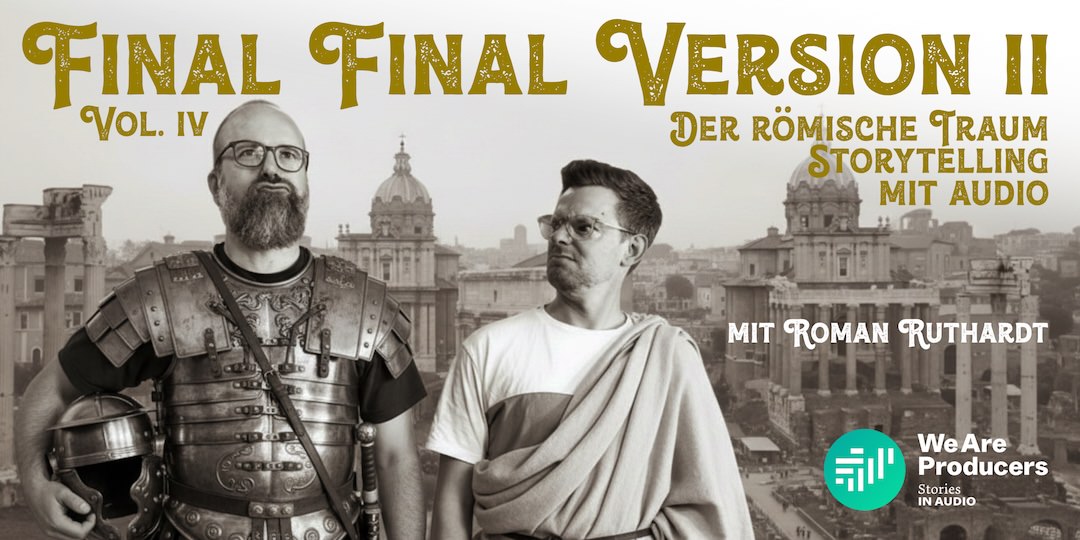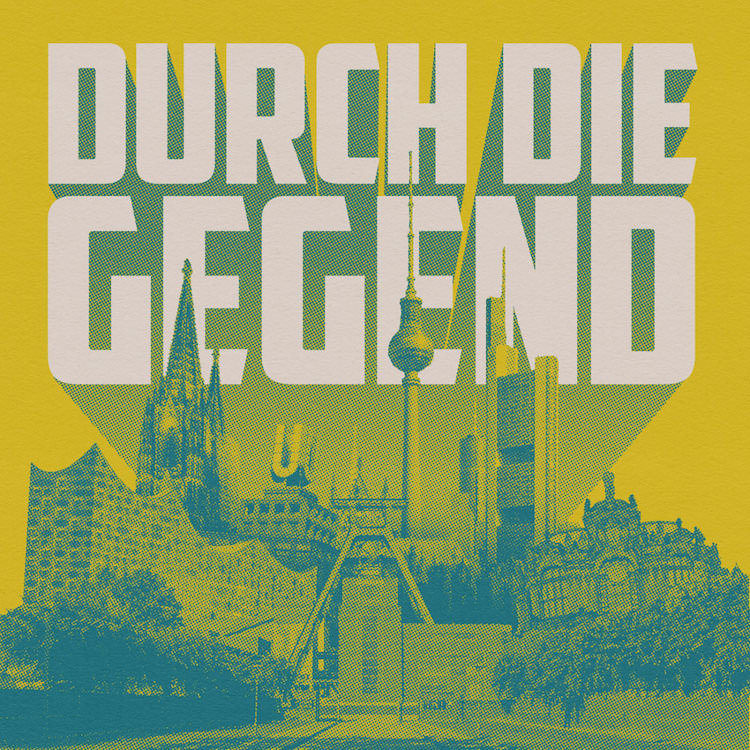What if educating people about an important topic wasn’t dull and boring? We were invited to help design a very nice project for the Berliner Aidshilfe. Fick dich, Biobuch! is an entertaining and informative podcast that primarily appeals to a young target group and dispels myths about HIV and AIDS. We developed the podcast concept together with the client. We were also responsible for the entire audio production and supported the Berliner Aidshilfe with hosting and publishing.
Sven, Managing Director at We Are Producers: “The podcast thrives on variety, the complexity of the individual episodes and its provocative approach. When working on the concept, it was important to us that we tell the story not just through individual people, but along the thematic thread – and then decide: What do we need in terms of context, background knowledge and personal experiences in order to bring them to life through moderation, guests and other actors?”
We spoke to Cora Doehn (Berliner Aids-Hilfe e.V.) and Sophie Kortenbruck (formerly Berliner Aids-Hilfe e.V.) about the project.
Cora, what does the Berliner Aids-Hilfe do?
Berliner Aids-Hilfe e.V. combines many tasks under one roof. We are a counseling center where people can get tested for HIV and other STIs anonymously and very inexpensively. If a test result is positive, we accompany the person to all the next steps. This can include initial support, assistance in finding a doctor or referral to a self-help group. Berliner Aids-Hilfe also has its own café, which is a safe space for everyone and all people are welcome. But there’s more to us than that: For example, I run the Youthwork Team together with my colleague Annabelle. We offer workshops for young people and also for organizations and nursing students on all topics relating to HIV, AIDS and other STIs.
Everyone has known about HIV since the 90s at the latest. Why do you need this podcast and who do you want to reach with it?
Absolutely right, everyone knows about HIV. But many people still don’t know that HIV and AIDS are not the same thing and that HIV is very easy to treat. There is a lot of misinformation, assumptions and half-knowledge floating around in people’s heads and we want to clear that up. Because by 2023, everyone should have heard of N=N. You haven’t heard of it? Great, then listen to our podcast right away 😉
The title of the podcast is quite provocative. How did it come to this?
We deal with the stigmatization of people living with HIV on a daily basis. We are politically engaged and take a partisan stance as a human rights organization for HIV-positive people. Internally, our patience often wears thin when people repeatedly tell us about the discrimination they are experiencing. For us as a youth prevention team, outdated information in biobooks is a particular trigger and our opponent. Because if there is outdated information there, we first have to clean it up and clarify the facts and can’t get started with anti-stigmatization work.
How did you proceed with the concept? What was important to you?
It was particularly important to us that we bring together different voices with very different perspectives for the young people. There are so many stories about how HIV can relate to their own lives. Not just the one image that many of us have stubbornly followed since the 80s and that is retold over and over again. It was important to us to show that questions about “guilt”, as they are often asked in connection with an HIV infection, can be cast in a completely different light. We want it to become clear how much the “guilt question” already has to do with discrimination.
How did the collaboration with us go from your perspective?
You were a great team and advisors. We were completely unfamiliar with podcasting and needed your support here and there. Of course, we had a crystal-clear idea in terms of content. But when it came to implementing how our idea could be turned into a good podcast for listeners, we honestly didn’t have much of a plan.
Let’s talk about the result: what can your listeners look forward to?
Listeners can look forward to finding out lots of new information that will make their own (sex) life much more relaxed. More relaxed, because we assume that this knowledge will help them to make better informed decisions for themselves. And this reduces the insecurities that many people feel when it comes to sex and builds up their own self-confidence. This is not only important for finding out what you want, but also for having the confidence to say when you don’t want something.
In addition, all listeners can then count themselves among the estimated 20% of people in Germany who have this knowledge in their heads. I particularly like the fact that it’s not just about simply imparting knowledge, but that a lot of personal stories are used. So the knowledge gets into the heart via the ears and then into the head.
Sophie, you were very much involved in the project and lead through the individual episodes as the podcast host. What was particularly important to you personally in this podcast project?
My aim was to make people enjoy listening, especially to a topic that can cause discomfort or rejection. Presenting the topic of HIV and Aids with ease was particularly important to me. The aim was also to package current knowledge simply and clearly, because the more I know about HIV and its consequences, the more calmly and consciously I can deal with it and make decisions. After all, our podcast is for young people, and I was less interested in medical details than in making the lives and stories of very different people living with HIV tangible. Initial feedback from the HIV-positive community and friends shows that we have succeeded.
Thank you both for the interview! We wish you every success in ensuring that the podcast reaches as many people as possible in order to provide an up-to-date, more informed view of the topic of HIV and AIDS!







